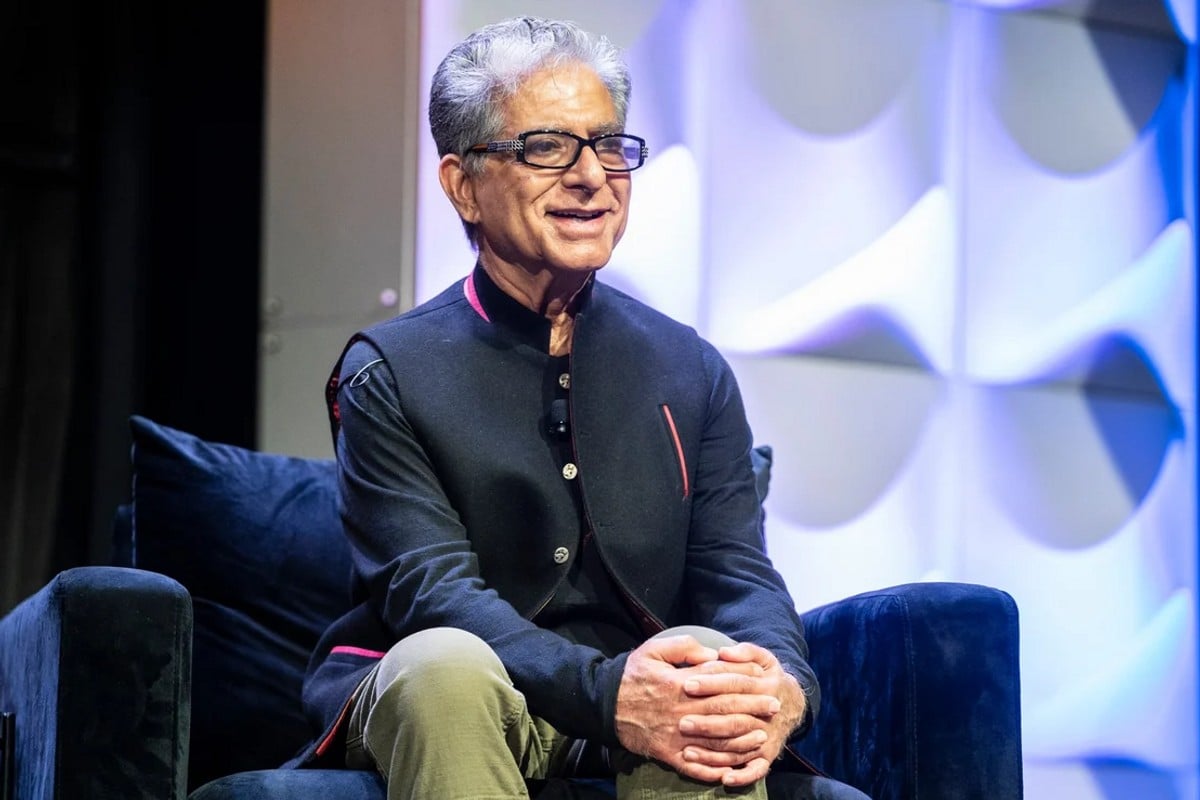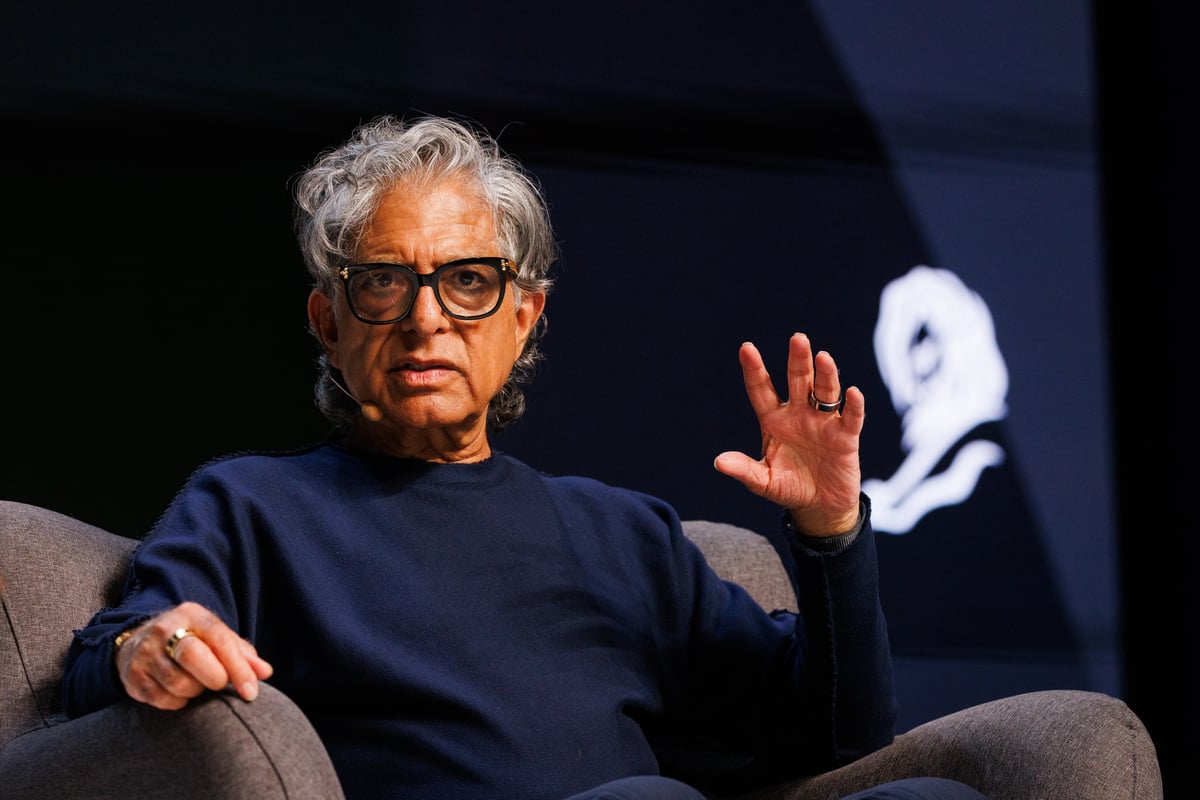
Every 40 seconds, someone takes their life.
If that wasn't heartbreaking enough, there are indications that for every adult that dies by suicide, there may have been more than 20 others attempting suicide.
The numbers are confronting. But what if there was a way to leverage technology to help?
During the pandemic, internationally acclaimed guru Deepak Chopra intervened in more than 5000 suicide attempts. But it wasn't actually him…
Before you get concerned, no, it wasn't a scam. It was artificial intelligence (AI).
It's controversial, I know. I mean, AI is easily one of the most contentious developments in our lifetimes, but Chopra believes if we use it correctly, it can help us lead more purposeful, spiritual and connected lives.
His foundation worked to develop a mental wellness chatbot named Piwi that he says helped teenagers who are struggling with their mental health.
The New York Times bestselling author told us all about it on Mamamia's podcast, But Are You Happy?
Listen to Deepak Chopra discuss how AI can make us better human beings on But Are You Happy? Post continues below.
How AI chatbots like Piwi support mental health.
Chopra said teens were happy to talk to the emotional chatbot because they felt they weren't being judged.
"We intervened in 5000 suicide ideations, and then also there were 20 million text messages that the AI was having with teenagers who didn't feel judged. The AI would ask them, 'What did you have for dinner last time?', 'Did your boyfriend return your call?'"





























































































